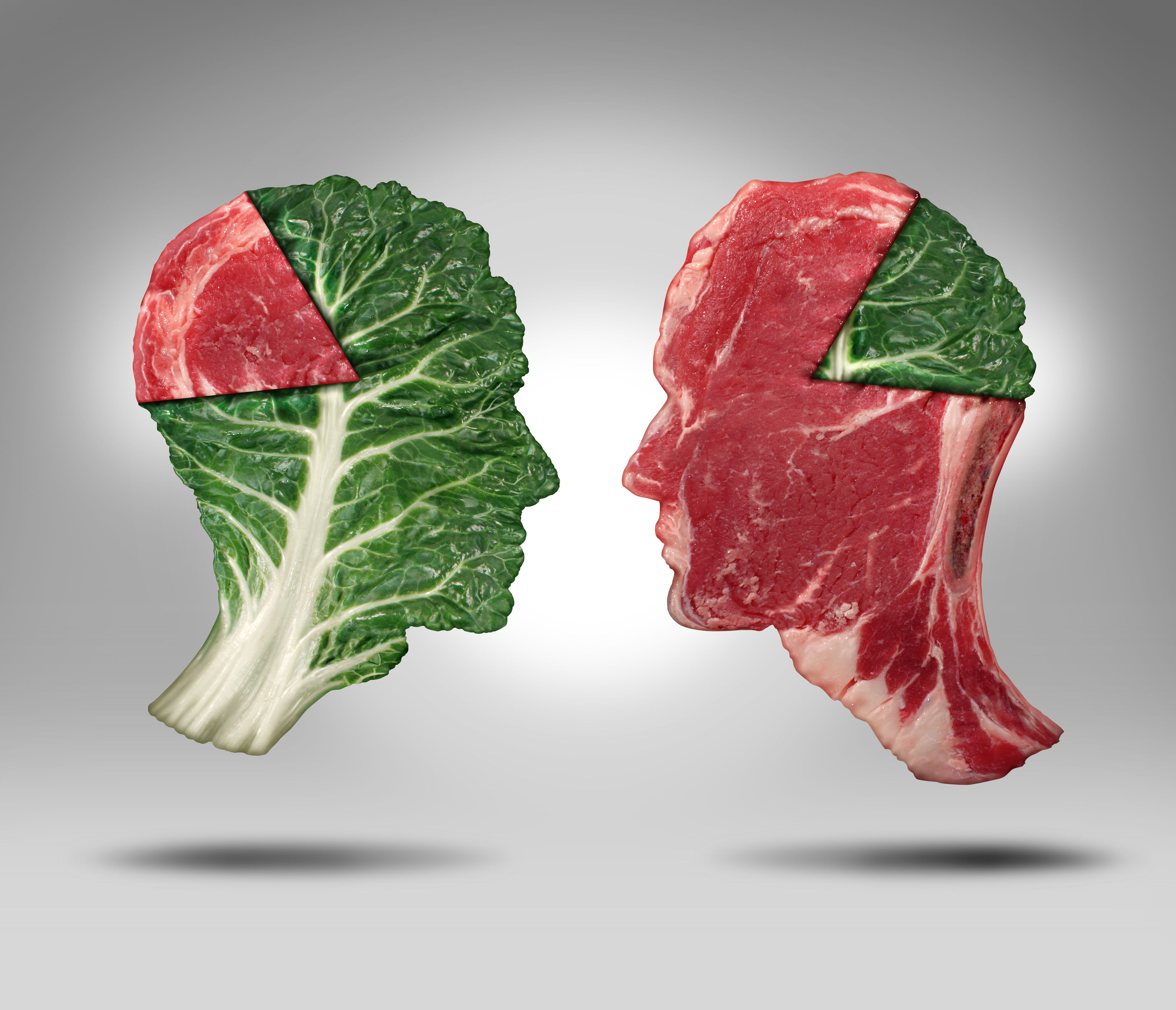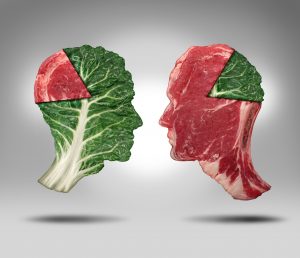Raboyseyee and Ladies,
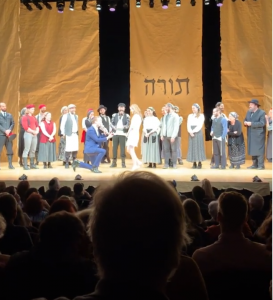 OMG: if you want to know how to get engaged to the one you love; you must watch this video taken at a very recent performance of Fiddler on the Roof . Mamish awesome! Click here: you will not be disappointed. And mazel tov once again to Dr. Dana Berg, she the beautiful and very accomplished daughter of our close friends Naomi and Howie Berg, and to her chatan Itai Abelski, he from Germany and Israel – upon their recent engagement -being celebrated this evening. May Dana and Itai merit to enjoy each other for the rest of their lives and may they together build a bayis ne’man bi’yisroel. Le’chaim! A big mazel tov to both families.
OMG: if you want to know how to get engaged to the one you love; you must watch this video taken at a very recent performance of Fiddler on the Roof . Mamish awesome! Click here: you will not be disappointed. And mazel tov once again to Dr. Dana Berg, she the beautiful and very accomplished daughter of our close friends Naomi and Howie Berg, and to her chatan Itai Abelski, he from Germany and Israel – upon their recent engagement -being celebrated this evening. May Dana and Itai merit to enjoy each other for the rest of their lives and may they together build a bayis ne’man bi’yisroel. Le’chaim! A big mazel tov to both families.
In late breaking news………….earlier this afternoon, we got the exciting news that Ziona Isaacs, she the beautiful daughter or our friends Doba and Kalman Isaacs, became engaged to Norman Greenberg, he from Brooklyn, and the son of Gladys and Robert Greenberg. A big mazel tov to the new couple to be, to Doba and Kalman, to Doba’s mom, Mrs. Miriam Treitel and to the extended Isaacs and Greenberg families. Details to follow.
Mazel tov again to our dear friends Jenny and Joey Felder upon the beautiful and very spirited wedding this past Tuesday – yes, they got the chuppah in timely- of their son Ethan to Shira Farber, she the beautiful daughter of Elaine and Yossi Farber. A special mazel tov to Ethan’s grandparents, Mr. and Mrs. Shimon and Miriam Felder, to the many uncles, aunts, cousins and extended families on both sides. May Shira and Ethan merit many decades of blissful marriage.
Mazel tov again to our friends Rena and Marc Kwestel upon the recent wedding of their beautiful daughter Rachel, to David Goldsmith, he the son of Rochelle Goldsmith and David Apfelbaum. May Rachel and David be blessed with many decades of blissful marriage. Mazel tov to the entire Kwestel gang, and to the extended Goldsmith and Apfelbaum’s families.
This week we also shout out Donald Watson. Who and why? Because in 1944, he coined the term vegan when he co-founded the Vegan Society over in England. At first, he used it to mean “non-dairy vegetarian” but by May 1945, vegans explicitly abstained from “eggs, honey; and animals’ milk, butter and cheese”. From 1951 the Society defined it as “the doctrine that man should live without exploiting animals”. Interest in veganism increased in the 2010s, especially in the latter half. That coincides perfectly with when veganism made its way to Dogwood Lane in Lawrence, New York. And here in August of 2019, kimat daily, vegan eateries are opening all around us and vegan options are becoming increasingly available in supermarkets and restaurants all over the world. Time to join the revolution?
Over the last few years, two of the Oisvorfer’s children, now ages 20 and 22 –let’s call them Mollie and Max- converted. Not to another religion chas v’sholom; instead they converted from being carnivores to vegans, from practicing carnivorism (made up word), to orthodox veganism. One is mamish a full-blown vegan while the other –the younger one- is still B’H eating fish. We have discussed and even argued over this topic for sure, ober, such battles lead nowhere with each party firmly holding onto his or her position. The Oisvorfer has repeatedly told them that the RBSO specifically gave the Yiddin permission to not just slaughter animals, but to also eat them. Is the heylige Toirah not written on parchment made from animal skins? It is! Case closed? And the connection of this opening remark to this week’s mitzvah laden parsha of Re’ay? We shall explore that single topic though the parsha –the longest in the Sefer Devorim- contains more than 50 of the 613 mitzvis (55 according to some).
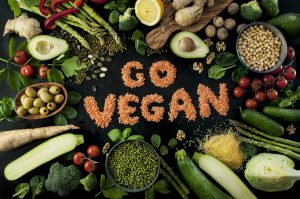 Ober what is it? Veganism is the practice of abstaining from the use of animal products, particularly in diet, and an associated philosophy that rejects the commodity status of animals. A follower of the diet or the shita (philosophy) is known as a vegan. Similar to different levels of observance in any religion, distinctions may be made between several categories of veganism. Dietary vegans (also known as strict vegetarians), refrain from consuming animal products, not only meat but also eggs, dairy, dairy products and other animal-derived substances. Then there are the ethical vegans who not only follow a vegan diet, but extend the philosophy into other areas of their lives, and oppose the use of animals for any purpose. Yet another term associated with the vegan movement is environmental veganism which refers to the avoidance of animal products on the premise that the industrial farming of animals is environmentally damaging and unsustainable. A number of vegans embody all of the above. That’s all nice, ober how is veganism at all related to our parsha? Let’s find out.
Ober what is it? Veganism is the practice of abstaining from the use of animal products, particularly in diet, and an associated philosophy that rejects the commodity status of animals. A follower of the diet or the shita (philosophy) is known as a vegan. Similar to different levels of observance in any religion, distinctions may be made between several categories of veganism. Dietary vegans (also known as strict vegetarians), refrain from consuming animal products, not only meat but also eggs, dairy, dairy products and other animal-derived substances. Then there are the ethical vegans who not only follow a vegan diet, but extend the philosophy into other areas of their lives, and oppose the use of animals for any purpose. Yet another term associated with the vegan movement is environmental veganism which refers to the avoidance of animal products on the premise that the industrial farming of animals is environmentally damaging and unsustainable. A number of vegans embody all of the above. That’s all nice, ober how is veganism at all related to our parsha? Let’s find out.
Nu, as mentioned earlier, though Moishe was but weeks away from passing, he still found time to reveal close to 200 new commandments in Sefer Devorim, quite a bit for the Yiddin to chew on. Speaking of chewing, in Re’ay, he taught dozens of new mitzvis and while discussing them, he also threw in a few lines about enjoying and eating meat. Seemingly, the consumption of meat –any-time and anyplace- was about to become optional. Let’s start there.
In the beginning, in the days of Odom and his eishes chayil, Chava, she most famous for succumbing to the advances of the slithering snake, a practice since emulated by millions of women all over world, if you chap, mankind and womankind were permitted to eat only fruits and vegetables. Said the RBSO in the heylige Toirah (Bereishis 1:29), azoy: “of every seed-bearing herb on the face of the earth, and every tree on which there is fruit-bearing seed.”
| 29. And G-d said, “Behold, I have given you every seed bearing herb, which is upon the surface of the entire earth, and every tree that has seed bearing fruit; it will be yours for food. | כטוַיֹּ֣אמֶר אֱלֹהִ֗ים הִנֵּה֩ נָתַ֨תִּי לָכֶ֜ם אֶת־כָּל־עֵ֣שֶׂב | זֹרֵ֣עַ זֶ֗רַע אֲשֶׁר֙ עַל־פְּנֵ֣י כָל־הָאָ֔רֶץ וְאֶת־כָּל־הָעֵ֛ץ אֲשֶׁר־בּ֥וֹ פְרִי־עֵ֖ץ זֹרֵ֣עַ זָ֑רַע לָכֶ֥ם יִֽהְיֶ֖ה לְאָכְלָֽה: |
Post Mabul (Flood), the RBSO (Bereishis 9:3) told Noiach “every moving thing that lives shall be food for you.”
| 3. Every moving thing that lives shall be yours to eat; like the green vegetation, I have given you everything. | גכָּל־רֶ֨מֶשׂ֙ אֲשֶׁ֣ר הוּא־חַ֔י לָכֶ֥ם יִֽהְיֶ֖ה לְאָכְלָ֑ה כְּיֶ֣רֶק עֵ֔שֶׂב נָתַ֥תִּי לָכֶ֖ם אֶת־כֹּֽל: |
Why the RBSO changed His mind and expanded the menus, ver veyst. He did not tell us in the heylige Toirah, but no one complained. Then again, they were all -but Noaich and his mishpocho- dead. Dead people don’t complain. That was then and let’s fast forward to the year 2488. As we read this week’s parsha and as the Yiddin are mamish poised to finally enter the Promised Land, the Toirah tells us about a change in policy.
Says the heylige Toirah (Devorim 12:15-21), azoy: “….However you may slaughter animals and eat their meat in all your gates, to your heart’s desire, according to the blessing of the Almighty, your G-d, which he has given you; … and then further clarification with these words: When the Almighty your G-d shall enlarge your border, as He has promised you, and you shall say, ‘I will eat meat,’ because your soul longs to eat meat; you may eat meat, to your heart’s desire. If the place which the Almighty your G-d has chosen to put his name there is too far from you, then you shall kill of your herd and of your flock, which G-d has given you, as I have commanded you, and you shall eat in your gates, to your heart’s desire.”
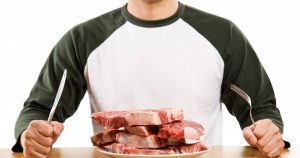 Is there a connection between expanded borders and permission to eat meat? Did expanded borders come with an expanded menu? And while the transformation of a law from prohibited to permitted is in itself quite astounding, the fact that the heylige Toirah repeats the permission and sates that man may eat meat “but to their hearts desire” is mamish incredible. Was the RBSO now recommending meat consumption? Not only can the people eat, but as much as they want? What’s pshat? Is eating meat a holy endeavor? Is the satisfaction of one’s desires so important to the RBSO? And, could these instructions be any clearer? Is the case closed? Are those refraining from enjoying a fleishfest (a newish term associated with an orgy of meats of every variety) for ethical reasons, be a shtikel misguided? Or, are vegetarians and vegans on the right track and we carnivores all wrong? Are they questioning the RBSO’s clear and specific instructions? Or, were these new orders only given grudgingly? And while you’re pondering over these questions, let’s add a few more: what were their marching orders while traversing the midbar? Could they enjoy a good BBQ or freshly grilled meat while in the midbar? Or, was the permission to eat meat as delineated in our parsha – wherever and wherever, brand new?
Is there a connection between expanded borders and permission to eat meat? Did expanded borders come with an expanded menu? And while the transformation of a law from prohibited to permitted is in itself quite astounding, the fact that the heylige Toirah repeats the permission and sates that man may eat meat “but to their hearts desire” is mamish incredible. Was the RBSO now recommending meat consumption? Not only can the people eat, but as much as they want? What’s pshat? Is eating meat a holy endeavor? Is the satisfaction of one’s desires so important to the RBSO? And, could these instructions be any clearer? Is the case closed? Are those refraining from enjoying a fleishfest (a newish term associated with an orgy of meats of every variety) for ethical reasons, be a shtikel misguided? Or, are vegetarians and vegans on the right track and we carnivores all wrong? Are they questioning the RBSO’s clear and specific instructions? Or, were these new orders only given grudgingly? And while you’re pondering over these questions, let’s add a few more: what were their marching orders while traversing the midbar? Could they enjoy a good BBQ or freshly grilled meat while in the midbar? Or, was the permission to eat meat as delineated in our parsha – wherever and wherever, brand new?
Nu, let’s find out. A careful read of the heylige Toirah tells us azoy: during the years in the desert the only meat allowed was holy, sacrificial meat of animals offered in the Mishkan. It’s taka emes that the Yiddin partook from some shiksa meat once in a while, if you chap, which they did, ober, thankfully they did not slaughter their catch. Instead, it was they, the hapless Yiddin who got slaughtered when they angered the RBSO by combining their sex-capades with some strange form of idolatry. Ober, if meat was previously forbidden –permitted only in conjunction with sacrifices brought in the traveling Mishkan, why the about-face? Were the Yiddin craving meat? Did they lodge complaints to Moishe and to the RBSO asking for meat? And did the RBSO change His mind? Let’s find out.
Says the Ramban: it’s taka so: there was a shift in position. Meat, permitted only in conjunction with korbonis (sacrifices), was suddenly to be permitted once the Yiddin entered the Promised Land. Was it because the RBSO wanted to ensure that His Yiddin had jobs? As shoictim (those engaged in kosher slaughter), restaurant owners, Mashgichim (those ensuing that only kosher meat is served), kosher caterers, and others to include wholesalers, distributors, and of course patrons? Perhaps! The Ramban says that the about-face was made by the RBSO for pragmatic reasons. Over the past 40 years, the Yiddin traveled and camped together. The Mishkan, built after the Yiddin sinned with the golden calf, was the center of Jewish activity. It was centrally located and seemingly always accessible and available. Bringing a korban was easy and let’s recall that a number of the shvotim (tribes) were somehow blessed with abundance of animals. In fact, two of them, the Reubenites and those from the tribe of Gad asked to remain in Trans-Jordan davka because they were blessed with many cattle. Says the heylige Toirah (Bamidbar 32:1) azoy:
1. The descendants of Reuvain and Gad had an abundance of livestock very numerous and they saw the land of Jazer and the land of Gilad, and behold, the place was a place for livestock. |
אוּמִקְנֶ֣ה | רַ֗ב הָיָ֞ה לִבְנֵ֧י רְאוּבֵ֛ן וְלִבְנֵי־גָ֖ד עָצ֣וּם מְאֹ֑ד וַיִּרְא֞וּ אֶת־אֶ֤רֶץ יַעְזֵר֙ וְאֶת־אֶ֣רֶץ גִּלְעָ֔ד וְהִנֵּ֥ה הַמָּק֖וֹם מְק֥וֹם מִקְנֶֽה: |
Nu, mistama after eyeing them daily, they began craving them imagining how they might taste grilled, or barbequed. The bottom line: bringing an offering was easy, always possible, and the Yiddin were able to partake. Moreover, which of the Yiddin wasn’t required –almost daily to bring forth a sin or guilt offering? Ober, finally the Yiddin were set to cross the Jordan and enter the Land. Once there, they were commanded to take possession of a vast land, they were to be spread out in all directions. The RBSO chapped (doesn’t He always?) that His Yiddin would mistama not be able to gather to a centralized location to bring korbonois but would mistama be partaking from fleish(meat) anyway. In other words: the RBSO saw that it was impractical to believe that Yiddin would only eat meat in connection with animal sacrifices while living in all corners of the Land. What to do? He changed the law: henceforth, eating meat was expressly permitted. The RBSO gave the Yiddin a bone. So happens the bone came with meat.
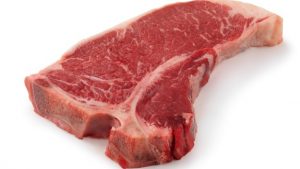 Does the RBSO mamish change His mind? Did the RBSO react because He knew that His people could not refrain from a good hot piece of meat from time to time? Does the RBSO mamish chap that His Yiddin were (and still are) weak when it comes to desires? And does He also –from time to time- react to their weaknesses? Seemingly He does and wait until you read of another law He seemingly changed in order to accommodate His Chosen People. We shall address that below.
Does the RBSO mamish change His mind? Did the RBSO react because He knew that His people could not refrain from a good hot piece of meat from time to time? Does the RBSO mamish chap that His Yiddin were (and still are) weak when it comes to desires? And does He also –from time to time- react to their weaknesses? Seemingly He does and wait until you read of another law He seemingly changed in order to accommodate His Chosen People. We shall address that below.
Let’s chazir: says the Ramban that while in the midbar, the Yiddin were allowed to eat animals only in conjunction with bringing a korban, and even then, only certain parts of the animal could be eaten (other parts went to the lucky officiating koihen on duty). Oh and avada let’s not forget that other parts were designated for the RBSO. Ober, upon entry, given that they would be too spread out and not in proximity to the Temple and its altar (which were stationary at that point), Yiddin would find it difficult to eat meat in this holy manner. Accordingly, the RBSO made the change: no longer would they need to go through the sacrificial rituals; they could eat meat as they desired.
Many vegans dig up the writings of Rav Kook who sheds light on this passage by comparing the fact that before the mabul (great flood), humans were not permitted to eat animals, whereas after the mabul they were. Why did the RBSO give man (not yet Yiddin) permission to consume meat post mabul? Says Rav Kook: because of the immense amount of sin, after the mabul, the RBSO refocused the world on dealing with the sins between human beings, and in consequence He permitted humans to eat meat. In other words: there were seemingly bigger problems in the world than Yiddin enjoying prime ribs, a few sliders, cholent -with meat of course, and even a hot open brisket dish. These issues took on a higher priority. And let’s be honest: consumption of animals is not ideal, ober the RBSO accepted certain human flaws and weaknesses to focus on other greater sins. He allowed meat consumption but also gave us conditions. Immediately after granting permission. In the first instance, to Noiach, He restricted the consumption of ever min hachai (eating a limb torn off alive animal), and in our parsha, He provided a full list of kosher and non kosher animals, birds, fish and even insects. They were first delineated in parshas Shmini and repeated here in our parsha. Perhaps they are repeated davka because there was a change in their status? Efsher! The RBSO also taught Moishe the laws of schcita, and forbade the Yiddin from consuming blood. In other words: with the newfound permission to pig out on kosher meat, He set forth certain conditions under which we may eat and enjoy meat. Efsher these new restrictions were meant to teach us that we can enjoy meat but must do so ethically. Are these two concepts mutually exclusive? So say the vegans.
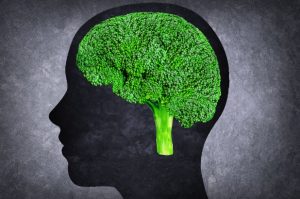 And speaking of enjoying a good shtikel fleish due to one’s strong desires, or expanded boundaries, in two weeks from now as we read parsha Ki Say Tzei, we will all be astounded –as we are every year- when we read how the RBSO also allowed His Yiddin soldiers to enjoy what is otherwise forbidden when it comes to desiring meat of another kind. He will allow them to chap a hot shiksa on the battlefield and enjoy her. Indeed so! In order to quench man’s desire for the otherwise forbidden, the RBSO came up with a plan. Who says the RBSO is harsh and demands too much of us? Avada this permission did not sit well with Rashi (who had only daughters) and a few others who –in response to this expressed permission- said azoy: the heylige Toirah allows this but discourages it. “Loi-dibra Toirah ela- kineged yetzer hora,” meaning that the heylige Toirah takes into account human inclinations. The RBSO is mamish great: He permitted animal consumption, ober did not efsher endorse it. The RBSO knew His people: He was simply acknowledging their flaws as human beings. Let’s not forget: He created us!
And speaking of enjoying a good shtikel fleish due to one’s strong desires, or expanded boundaries, in two weeks from now as we read parsha Ki Say Tzei, we will all be astounded –as we are every year- when we read how the RBSO also allowed His Yiddin soldiers to enjoy what is otherwise forbidden when it comes to desiring meat of another kind. He will allow them to chap a hot shiksa on the battlefield and enjoy her. Indeed so! In order to quench man’s desire for the otherwise forbidden, the RBSO came up with a plan. Who says the RBSO is harsh and demands too much of us? Avada this permission did not sit well with Rashi (who had only daughters) and a few others who –in response to this expressed permission- said azoy: the heylige Toirah allows this but discourages it. “Loi-dibra Toirah ela- kineged yetzer hora,” meaning that the heylige Toirah takes into account human inclinations. The RBSO is mamish great: He permitted animal consumption, ober did not efsher endorse it. The RBSO knew His people: He was simply acknowledging their flaws as human beings. Let’s not forget: He created us!
As an aside, before you accuse the Oisvorfer of comparing the “eishes-yifas- toiar (the beautiful hot shiksa even if married) found on the battlefield, to a piece of meat, let us see what the heylige Gemora had to say. Says the heylige Gemora (Kidushin 21a- 22b), azoy: Our Rabbis taught: ‘And you see among the captives’: at the moment she is taken captive; ‘a woman’ – even married; ‘of beautiful countenance’ – the Toirah only provided for human passions: it is better for Israel to eat flesh of [animals] about to die, yet [ritually] slaughtered, than flesh of dying animals which have perished; ‘and you have a desire’ … then you shall bring her home [to your house].’ teaching that he must not molest her on the [field of] battle. Did the heylige Gemora make a shtikel hekish (comparison) between the beautiful woman to a piece of meat? Ver veyst but so it would epes appear.
What is the bottom line? Are the vegetarians and vegans out of touch? Not according to Horav Kook who said in his book on vegetarianism, (Hazon ha-Tzimhonutve-ha-Shalom), azoy: permission to eat meat implicitly sees the craving of a person for meat as a moral weakness. He also says that as human beings become loftier, they will feel that it is wrong to take the life of birds or beasts. His bottom line: it is preferable for man not to eat meat, ober he chapped that people are not prepared to give it up, at least not yet.
As to the Oisvorfer’s bottom line: with two of his kids now veganized, he has -in recent months- been getting acquainted with their eating habits, and has enjoyed a number of vegan dishes. Another bottom line: the RBSO is great! He chapped that man has desires and changed the rules to accommodate them.
A gittin Shabbis and a gittin Choidesh-
The Heylige Oisvorfer Ruv
Yitz Grossman
